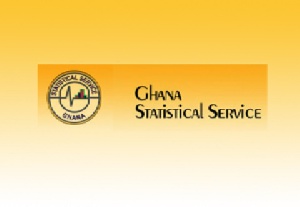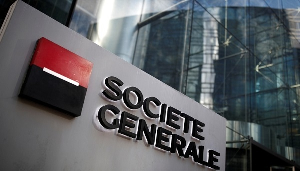- Home - News
- TWI News | TV
- Polls
- Year In Review
- News Archive
- Crime & Punishment
- Politics
- Regional
- Editorial
- Health
- Ghanaians Abroad
- Tabloid
- Africa
- Religion
- Election 2020
- Coronavirus
- News Videos | TV
- Photo Archives
- News Headlines
- Press Release
Business News of Tuesday, 14 February 2017
Source: B&FT Online
Economy remains largely informal – GSS report confirms
None of the ten regions of the country has up to 20percent of businesses or what the statistical service calls “non-household establishments” being formal, confirming concerns that a lot of people remain outside the tax net.
In its 2016 Regional Spatial Business Report, the Ghana Statistical Service defines as informal an establishment that does not have professionals keeping its accounting records.
The report establishes that out of 638,000 non-household (commercial) establishments in the country, 395,977 of them are in the informal sector—representing 62 percent.
Greater Accra is the only region which comes closer to registering up to 20percent of businesses. Out of a total of 177,152 non-household establishments in the region, 147,543 are informal establishments, representing 83.3 percent.
In the Ashanti Region, 103,961 businesses or 92.9percent are in the informal sector, out of a total of 111,947 business establishments.
The Western Region comes third, with 58,638 or 92.4 percent of its business establishments of 63,439, found in the informal sector.
Although it recorded the least number of establishments in general, the Upper West Region has as much as 93.7percent of its businesses being in the informal sector. The region has a total of 13,728 commercial establishments, with 12,867 of them being in the informal sector.
Averagely, figures from all ten regions, however, show that the informal sector makes up 62 percent of all commercial businesses in the country.
Despite the large numbers of businesses in the informal sector, its contribution to the economy in the area of taxes has not been encouraging, as a chunk of the country’s tax revenue comes from the formal sector, which the GSS data shows has more than 56,800 establishments.
A survey commissioned by the Friedrich Ebert Stiftung in 2016 dubbed: ‘understanding the urban informal economy in Ghana’ has shown that over 80 percent of people in the country’s largely informal economy agree they must pay taxes once they earn an income.
While about 35 percent of employers in the sector pay value-added tax through purchases they make from formal enterprises, less than a quarter (23.6 percent) pay personal income tax, the study reveals.
Although self-employed persons are required to pay income tax at graduated rates in four equal instalments, the report adds, it is mainly people who have formalised their businesses or are in formal employment that pay -- letting over 80% of the workforce off the hook.
Another finding by the Trades Union Congress (TUC) indicates that only about 7 percent of informal economy workers have a written employment contract, with many of them underpaid.
“In 2012/13, the monthly average earnings among informal economy workers was GH?101.01 or 27.9 percent lower than the national average earnings of GH?463.30,” the findings said.
The situation has long hurt the country’s economy and many calls have been made for successive governments to broaden the tax net to include the informal sector.
The Friedrich Ebert Stiftung report advocates attention for the sector since it has the key to transform the economy and further drive growth.
“The number of jobs in the sector are key to transformational growth and poverty reduction, and the consequent improvements in standards of living.
The sector cannot and should no longer be considered as a temporary and a fleeting phenomenon. It is here to stay,” the report states.
The Ghana Living Standards Survey (6) indicates that the informal sector is predominantly made up of small to medium-scale businesses, consisting of producers, wholesale and retail traders, and service providers, comprising contributing family workers, casual wage workers, home-based workers and street vendors, among others.
Most of them, it says, are largely self-employed persons – farmers, artisans and craft-workers, traders, food processors etc.











